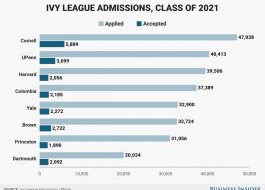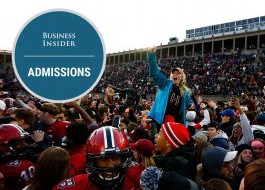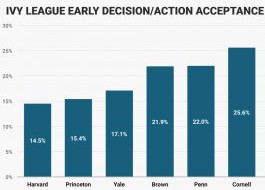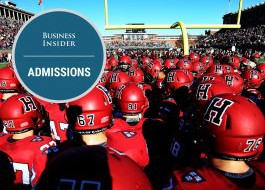 Yale University REUTERS/Shannon Stapleton
Yale University REUTERS/Shannon Stapleton
Many elite colleges enlist the help of alumni volunteers to conduct interviews with prospective students to supplement their admission process.
The interviews are meant to give the admissions committee more insight into applicants.
But one interviewer, Ben Orlin, wrote an op-ed in the Los Angeles Times last October explaining why after one year as an alumni interviewer at Yale, he would never enlist again.
The advice should come well-heeded, especially as a new crop of high schoolers begin to apply to college.
Orlin explains that he feels uncomfortable about having a role in an admissions process that he says is random, opaque, and soul-crushing for students.
"Rejection by a university ought to feel like getting swiped left on Tinder," he wrote. "There's nothing terribly personal about it. The admissions office doesn't really know you. The university is just looking out for its own interests, and you don't happen to fit into the picture."
Instead, however, Orlin likens the experience to getting dumped at the alter. Students devote months of their lives to the process, visit the campus, provide letters from teachers, send all of their test scores, and have an alumni interview.
"Applying to college resemble[s] a lengthy romantic courtship," he wrote.
Why I've Stopped Doing Interviews for Yale: because the admissions situation is crazypants.http://t.co/o68ItomkJ7 pic.twitter.com/DX9XjD12eO
Orlin's hesitation to be a part of a process that results in near total disappointment for applicants is even more understandable when looking at Ivy League acceptance rates.
For the class of 2020 — the most recent class to be accepted into college — the admission rate is below 10% for almost all Ivy League schools.
He flips that number around to talk about how many rejection letters Yale doles out.
"No matter how sincere their intentions, the Yale admissions team is beholden to grim statistical reality: 94% of students are getting rejection letters," he wrote.
He does offer up a solution, however unrealistic it may seem. Orlin suggests that Ivy League admission decisions should be chosen by lottery, and have base requirements that students must meet before applying in the first place.




